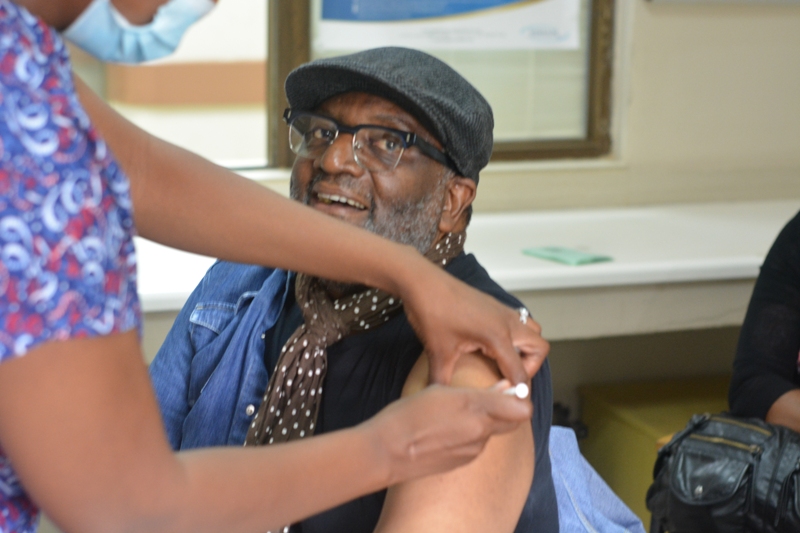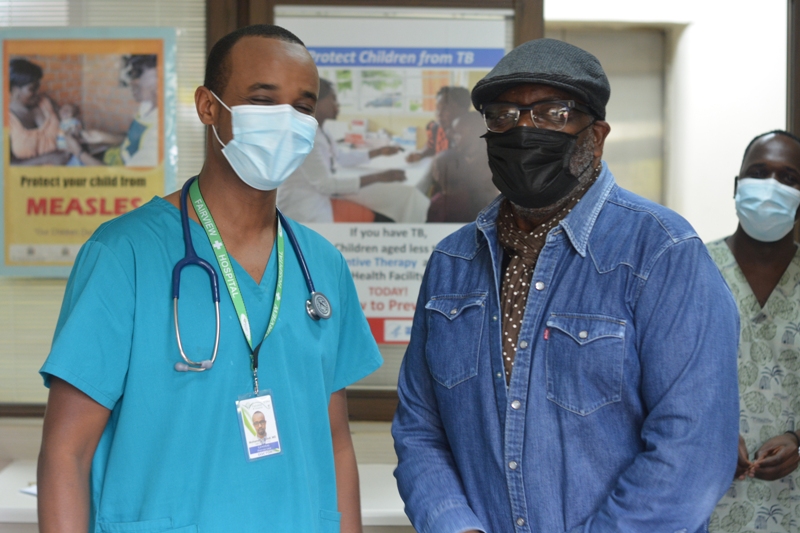By CINDY SIPULA
As COVID-19 takes a toll on Zambia, the region and the world at large, effects of disruptions in businesses, families and in society in general have become the order of the day. People have had to make adjustments in their lives in following the health guidelines that are mean to minimize chances of being infected with the virus.
However, among those who had experienced the disease and recovered, there are those who are willing to share how they help on to dear life without losing hope of that they would see a better tomorrow.
Such people are sharing their stories of hope, survival, and the experience of living through a global pandemic as victims.
They have also shared the need for an analysis of significant and possible changes which are required to fix the country’s healthcare facilities while improving and putting in place policies that complement existing ones.
Former Lusaka Mayor Fisho Mwale, who is a commercial fish farmer, youth mentor and entrepreneur is a two time survivor of COVID-19.
Mr Mwale expressed excitement following the 119,000 vaccine doses that were donated to Zambia through the COVID-19 Vaccines Global Access (COVAX) facility.
Mr Mwale was among the very first people who volunteered to receive the vaccine in April, 2021.
However, after getting the first vaccine, he started living by the notion that once vaccinated, a person is immune to COVID-19, so he stopped following the health guidelines of preventing the spread of COVID-19.
Belligerent and full of life as he looked forward to his second vaccine, which was scheduled three months after his first, the second wave of the COVID-19 pandemic, which was driven by the Delta variant, caught up with Mr Mwale who got infected with the virus.
Showing very few symptoms, Mr Mwale was unaware of the effect as vaccinated people were said to be either asymptomatic or have very mild symptoms if they contracted the Delta variant.
“When the symptoms of the disease started to take effect, I didn’t seek medical attention, but started to self diagnose and used protocols that were not medically certified,” he said.
The virus had at this point taken a toll on Mr Mwale’s health, causing major threats to his kidney, initiating diabetes, acute pneumonia and persistent headache and breathing problems.
A local private hospital, which Mr Mwale subscribes to, was at the time not taking in coronavirus patients and as a result, a frantic search for a suitable hospital ensued as his family tried to have him admitted to public or private hospitals.
“Sadly, even Levy Mwanawasa Hospital was unable to admit me as it was equally overwhelmed, like many other public hospitals at the time,” he said.
In a very critical condition and with little time to survive, Mr Mwale was transferred to Fairview Hospital, a private health facility that was equally full to capacity, and was admitted.
Medical staff took the difficult task of managing his condition, placing him on medication for hypertension, diabetes and high blood pressure which had been caused by the COVID-19 infection.
Mr Mwale stopped being diabetic but said he still suffers from the long covid illness of joint pains, breathing problems and believes his poor eyesight has worsened.
Asked why he chose a private hospital instead of a public facility, Mr Mwale said the pandemic had tested the whole medical system and at the time his illness took hold, the world was halfway into the pandemic.
As a result, all the facilities were either full or not taking coronavirus patients.
“Another factor that also affected us all, at that time, was the lack of oxygen. And so even when I did get to be admitted at the private hospital, they were so overwhelmed that I was asked to find my own oxygen if I could, which luckily we managed to get,” he said.
Mr Mwale thanked medical personnel at public hospitals for doing a difficult job.
He said even though Zambia is still experiencing the fourth wave of the pandemic, and the disease is not going anywhere anytime soon, he still experienced episodes of being afraid, knowing well that coronavirus is no longer a pandemic but has become endemic.
He said the time he came out of hospital, having been admitted for just two weeks, he found that close to 50 people he knew had died from coronavirus.
“That’s a serious statistic which I could have been part of, and as a person, your whole life changes to affect your social life when such things happen,” he said.
Mohammed Abdi, a medical doctor at Fairview Hospital, said there is been less pressure on health facilities during the fourth wave unlike the time the Delta variant took hold.
“The worst experience I have had in my practice was when all the beds were occupied, and we had patients outside who also needed oxygen. We had no space. So the hardest part was telling the families that we don’t have space to keep your loved ones. It’s not an easy thing to say though we may not show it,” Dr Abdi said.
Josh Bwalya, another coronavirus survivor working between Zambia and Tanzania, said he too developed what seemed like a simple cold during one of his trips.
As he travelled on his usual car collection trips on behalf of a client, he developed flu-like symptoms and started praying that it was not COVID-19.
Upon reaching the Nakonde checkpoint, he was tested for coronavirus and found positive, but he refused to be quarantined.
Bwalya had driven 108 kilometers from a designated isolation and quarantine facility, and when he managed to locate a health facility, he was told that the district he was in at the time had no suitable isolation centres to accommodate him.
He started self medication while he making calls to his relatives who later picked him up and drove him to Lusaka for further treatment.
“We arrived at an isolation centre where I was immediately put on oxygen. I had already started having difficulty breathing and I was gasping for air,” he said.
Ministry of Health Permanent Secretary in charge of Technical Services Lackson Kasonka said the pandemic has not only affected the people of Zambia but the whole world.
Prof Kasonka said coronavirus has continued to restrict people’s lives and that the country has lost around 2,700 people.
“Sadly, we had to learn through hard times as many other developed nations. You will remember that at some point, we even went on to discharge people from hospitals so as to accommodate and quarantine patients because we thought they would die in hospital because COVID-19 was in hospital,” he said.
Prof Kasonka said Zambia was not well prepared for the Delta variant logistically.
“We didn’t think it would be very critical, but we learned so many lessons leading to Omicron, which I believe has helped us manage as we were over prepared,” he said.
This article was developed with support by the African Women in Media, through the AWiM2021 Agenda 2063 African Women in Media Awards organized in partnership with the African Union Commission, its contents are the sole responsibility of the author and do not necessarily reflect the views of AWiM and African Union Commission.-ZANIS.








